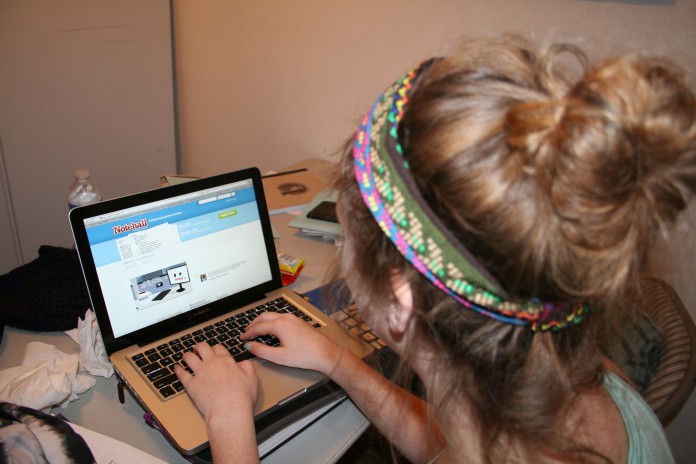Writer
Photo by Tori Yonker
The concept is simple enough: make money for taking classes.
Hundreds of students around the country are putting it to the test with Notehall.com and similar sites. Notehall, acquired by Chegg.com last June, is a site that allows users to buy and sell class notes and study guides to each other.
Users buy “credits” for materials, and around half of the profits go to the sellers. Supporters of the site highlight that Notehall buyers benefit from using the notes to save time for studying while the sellers benefit from the process of compiling those notes to be sold. For sellers, the potential profits and recognition for creating the notes are additional incentive to make thorough material that they themselves will benefit from using.
Some UCSB students are supportive of the idea as well.
“It is good to see [ideas explained] from someone else’s perspective,” said first-year physics major Zack Hess. “Websites like this encourage people to think, ‘How would I explain this to someone who does not understand?’ which is the crucial question everyone needs to ask themselves before they can really understand a subject.”
However, Notehall states that schools can create their own policies regarding the monetization of resources. Some schools, including the University of California system, have policies standing against the commercialization of class notes. Selling notes is also a violation of California state law, regardless of whether or not the student took the notes themselves.
Additionally, buying and selling notes from class brings up copyright and ethical issues. Posting a copy of the instructor’s Powerpoints and summaries online without permission falls under copyright infringement, be it for profit or not. Introducing commercialization into this equation makes the violation of intellectual rights more serious.
“If it [distributing notes] is not done in a commercial way, I don’t mind, but if it is done in a commercial way, I would like to know about it,” says Professor Fikret Yegül from the Department of History of Art and Architecture at UCSB.
Even Notehall itself says in its terms and conditions that class notes “must be substantially rewritten after class and include independent thought and analysis, research and information.” However, the line between what constitutes violating these terms or not is rather vague.
Other alternatives to the website include Associated Students Publications, which has its own note taking services available upon request for a fee. Disabled students who qualify can also receive note taking services free of charge, according to Gary White from the Disabled Students Program. However, non-disabled students cannot receive this service.
And when all else fails, the option of sharing notes with classmates for free will always prove reliable.














